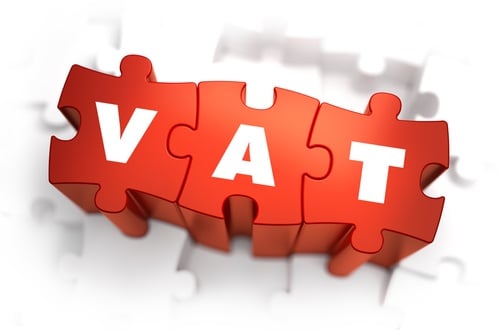BLOG
VAT for business, explained

VAT. Three little letters, one big mystery to many a new business owner (and let’s be honest, plenty of experienced business owners too!)
In this blog post, we’ll aim to clear the picture once and for all. Stand by for VAT for business explained…
What is VAT?
VAT, or Value Added Tax, is levied on the sale of most goods and services in the UK (with some exceptions). You might not always know when you’re paying it though, because it’s often incorporated into the price of an item.
In order to charge VAT, a company must be VAT-registered, and indeed for any business with an annual turnover of more than £83,000, registration is compulsory (you could face a fine if you don’t oblige). You’ll also need to register for VAT if your business buys goods from other countries in the EU.
If your turnover is lower than £83,000, and you’re not trading with other EU countries, you don’t have to register for VAT - but you can choose to. And there are some benefits to doing so.
Should you register for VAT voluntarily?
For new businesses with a modest turnover below the threshold, registering for VAT voluntarily can give the impression that your company is bigger than it is. If you’re trying to land some big clients who only want to deal with established entities, this perception can be important.
There’s a potential financial benefit too, particularly if you’re incurring a lot of costs in the process of starting up your business. All of the VAT you’re paying (on things like computers, office furniture and supplies) can be claimed back through the system if you’re VAT registered.
Understanding how VAT works in this way means you can decide if registration is right for you.
Understanding VAT (how it works and how to pay)
Once you’re registered for VAT, you’ll add the tax onto all of your sales. At the time of writing, the rate of VAT is 20% - so selling a product or service for £1000, you’ll add £200 VAT on top. On your invoices, keep the inc VAT and exc VAT separate and clear.
Every three months, you’ll complete a VAT return, noting how much VAT you have been paid in that period. You’ll also need to state how much VAT you have paid to other businesses.
If you’ve received more VAT than you’ve paid out, you’ll pay the difference to HMRC. If you’ve paid more than you’ve accumulated, it’ll be HMRC paying you!
So, it’s not that confusing after all - but if you’d like to talk tax with us on a deeper level, just give us a call on 0121 667 3882







.jpg?width=1500&height=1000&name=amy-hirschi-K0c8ko3e6AA-unsplash-(5).jpg)

